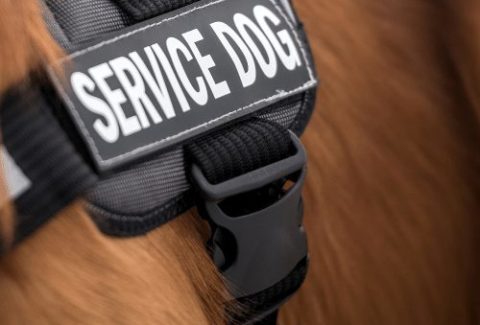Is Your Training Too Easy For Your Dog?
May 9, 2021 2021-05-24 14:13Is Your Training Too Easy For Your Dog?
Is Your Training Too Easy For Your Dog?
I have often heard a saying along the lines of “My dog is too smart for basic training. He gets bored.” or maybe “He is through with this exercise. He isn’t interested in performing it again”
It is an interesting idea, that the level of challenge translates into our dog’s enthusiasm for training (and once again, the implied level of pride in doing a difficult task is a very human trait).
However I do not believe that this is the case.
If you have a dog who begs at the dinner table, you will know that the simplicity of the begging behavior doesn’t deter him from begging. One could say: He should get bored, he just sits there staring at us every night. Why does he not stop it? The reason why your dog keeps on doing it regardless of the plainness of the task is the outcome.
Dogs have a very limited understanding of the difficulty that a behavior presents (and even if they did, they would likely not care). They do not have an abstract concept of which behaviors many dogs can perform (sit, down, heel) and therefore are basic, and which behaviors only very few dogs can perform (like a walking handstand) and therefore are rare and difficult. To them, they can either do it and will be successful in doing it, or they cannot do it and will fail.
Our dogs are not interested in or even aware of how hard the behavior on hand may or may not be. They are interested in performing it on their own account (choice instead of coercion), and they are interested in the outcome (the higher value, the better).
From your dog’s point of view, he will be thrilled to engage in a behavior as long as he gets something out of it (remember: they are experience junkies). If he is successful in earning resources, he will perform the behavior again.
(Of course, your dog decides whether or not a reward is actually a reward to him: food might not be a reward to a dog whose stomach is overly full, and a tug toy might not be a reward for a dog who has not learned to enjoy playing.)
All learning has an evolutionary root: If our dogs’ ancestors did something that resulted in them gaining access to food, they would learn to do it again (and the ones who did not learn, would perish and not be able to pass on their genes). Imagine an animal refusing to pursue a behavior that is known to yield resources, because that behavior was too simple and “boring”. These dogs would not have been part of the natural selection process, instead they would have been bypassed by others who did pursue the behaviors that paid off, no matter how complicated it is.
Boredom is a lack of stimulation – the stimulation in training your dog however has to come through the choices you present to your dog, your rewards and your responses, not through the challenge of the behavior.
Here is a short video of a training session with my dog Kix. Kix knows many behaviors and tricks. This is a session of doing nothing else than her sitting, staying, and getting rewarded.
Watch to see if she seems bored:
Through varying my rewards, presenting her with choices of what to do (instead of, eg, just applying pressure on her behind to sit), making her reinforcements dynamic and fun, we had a session that was not boring at all, even though it evolved around arguably the most basic of behaviors.
Don’t worry about how hard your challenges are – instead work on making them as fun as possible!
Happy training.
















